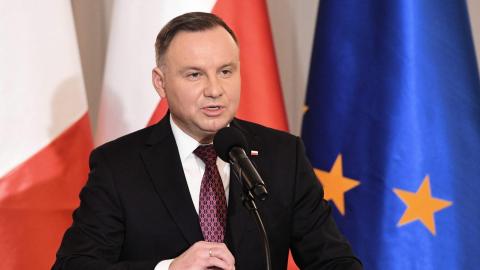Democracy Digest: Poland’s Presidential Soap Opera

Those three are Malgorzata Kidawa-Blonska from the centrist Civic Coalition, Wladyslaw Kosianiak-Kamysz from the agrarian Polish People's Party and independent Szymon Holownia.
Jitters in the PiS camp were confirmed by party leader Jaroslaw Kaczynski himself during an interview published on February 26 by Gazeta Polska, a magazine considered friendly to the right-wing government.
In the interview, Kaczynski says losing the presidency could have catastrophic consequences for his party.
"I say this for two reasons. For one, the president does have a significant negative power, bigger than the Senate [upper house]. It is harder to overrule the president's veto than to approve a law which has been rejected by the higher chamber. This would lead to a continuous conflict and the inability to sort out many important issues.
"The second reason is what I call the emotional-psychological state. If the president wins another mandate, our supporters will feel strengthened. If not — it will be a negative signal for them."
Kaczynski called on all parties in the "United Right" alliance that controls the Sejm lower house to "fight hard until the last minute of the campaign". (The United Right includes PiS, the Solidarity Poland party of Justice Minister Zbigniew Ziobro and the Poland Together party of Science Minister Jaroslaw Gowin.)
He warned his United Right allies that "now they must forget about their own ambitions, political careers or plans to consolidate their own formations".
Both Solidarity Poland and Poland Together, which are key to the PiS majority in the Sejm, did better in parliamentary elections last year than they did in 2015, fuelling speculation that their leaders might try to exploit their leverage.
Anti...
- Log in to post comments










